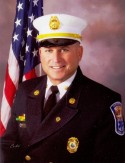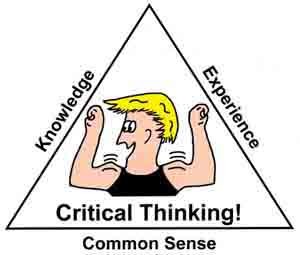So I’m back from a couple of weeks of R&R with Mrs. Avsec at Massanutten Resort outside of Harrisonburg,  Virginia in the heart of the Shenandoah Valley. I’m sitting at my computer getting ready to write this week’s blog post when I get an e-mail message from one of my favorite–and yours, too, from the number of views and shares her posts get–Guest Bloggers, Chief Susanna Schmitt Williams. But before I move on to her piece, allow me to give you a bit of context for her blog. From Chief Schmitt Williams’ e-mail message:
Virginia in the heart of the Shenandoah Valley. I’m sitting at my computer getting ready to write this week’s blog post when I get an e-mail message from one of my favorite–and yours, too, from the number of views and shares her posts get–Guest Bloggers, Chief Susanna Schmitt Williams. But before I move on to her piece, allow me to give you a bit of context for her blog. From Chief Schmitt Williams’ e-mail message:
My high school [Philadelphia’s Central High School] is a public high school, however it accepts students from Philly and the surrounding areas. Interested students have to take an entrance exam and are selected based upon prior academic history, entrance exam scores, and community activities. It is a very competitive process to be accepted at Central.
My purpose in the article was to recruit fellow geeks into our profession and discuss why we needed them and their thought processes in fire and emergency services. Most of the students that graduate from Central go on to careers such as doctors, lawyers, judges, professors, etc. High $$$ professions. Those of us that go on to public services are few and far between.
Without further ado, I give you Chief Schmitt Williams!
Profession Seeking Central High School Graduates
During my time at Central as a member of 252, I was preparing to enter the career field of education. I was  committed and ready to embark on a lifelong career of educating our future movers and shakers in this world.
committed and ready to embark on a lifelong career of educating our future movers and shakers in this world.
After I graduated Central, I attended and graduated from Temple University and began my career teaching kindergarten. It wasn’t until three years into teaching that I realized I was in the wrong profession.
The career I transitioned to from education was not something I grew up wanting to do. It was not something my parents encouraged. It was not something my friends brought to my attention as a career choice that matched me. To tell you the truth it wasn’t even something I realized I could do!
What I found in my transition is a career that requires tremendous physical fitness in both strength and cardio, being able to think on your feet, working well under extreme stress, the ability to always work as a member of a team, and a desire to provide one of Maslow’s basic needs for humanity – to aid my fellow citizens in feeling safe in their communities.
It is a profession that, for promotions to executive officer positions, requires the aforementioned skills plus a broad range of additional talents:
- Dynamic and charismatic leadership;
- Analytical and strategic thinking;
- Excellent communication skills (both written and verbal);
- A willingness for lifelong learning;
- Political acumen;
- Budgeting skills;
- Project management skills;
- Human resources management skills;
- The ability to “think outside the box”; and
- A commitment to teamwork.
 My profession is currently going through an evolution. It was once perceived as, and sometimes unfortunately still is viewed as, a stereotypical “blue collar” job. The impression being that all it entails for one to be successful is that you be a “chest beating, knuckle dragging” Neanderthal. Nothing could be further from the truth these days.
My profession is currently going through an evolution. It was once perceived as, and sometimes unfortunately still is viewed as, a stereotypical “blue collar” job. The impression being that all it entails for one to be successful is that you be a “chest beating, knuckle dragging” Neanderthal. Nothing could be further from the truth these days.
My profession, if you read most career announcements for those positions such as the one I hold, require:
- A bachelor degrees with masters preferred;
- Fifteen to twenty plus years of experience in the profession;
- Multiple industry specific certifications; and
- A requirement to complete an extensive and exhaustive assessment center.
This is a far cry from where my profession was twenty years ago where typically whoever had been with the organization the longest was promoted to the chief executive officer. However, my profession is still evolving from where it was in the past and has yet to establish its new identity, determine where it is going, and what it will look like moving forward. We are at a dynamic place in my profession. It’s an exciting time.
We desperately need more people like Central graduates. Persons who have the ability to see why diversity is critical  to success, why hanging on to traditional archaic methods will drive an organization to extinction, and why arguments backed up with empirical data trump emotional arguments in securing needed resources. Central graduates have the needed leadership traits for my profession.
to success, why hanging on to traditional archaic methods will drive an organization to extinction, and why arguments backed up with empirical data trump emotional arguments in securing needed resources. Central graduates have the needed leadership traits for my profession.
You will need to start at the bottom as the rookie and work your way up to leadership positions. That’s just the way my profession is. Even with all the knowledge and degrees in the world you cannot walk into a leadership position in this profession, that’s very rare. Trust me, you’ll need the experience where the “rubber meets the road” to truly understand how to lead organizations in my profession. It’s that balance of experience, education, and knowledge that makes for the truly great leaders in my profession.
You’ll see things ordinary people don’t in this profession. Things that make you go home at night and hug your family a little tighter because you can’t put into words what you experienced that day. You’ll see the both the best and worst in humanity, sometimes in the same day, but at the end of the day you will have helped people through the worst day of their lives. In my opinion there is no better profession than the one I have found. It is more than a career; it is a family, a brotherhood/sisterhood, where co-workers literally have your back. You train together, eat together, and live together for your work day. Everything is completed as a team.
What profession has all this and needs Central graduates? It can go by several different variations of names: Fire and Emergency Services, Fire Rescue Departments, or Fire Departments. But I call it the “best job in the world.”
 Fire & EMS Leader Pro The job of old firefighters is to teach young firefighters how to become old firefighters!
Fire & EMS Leader Pro The job of old firefighters is to teach young firefighters how to become old firefighters!